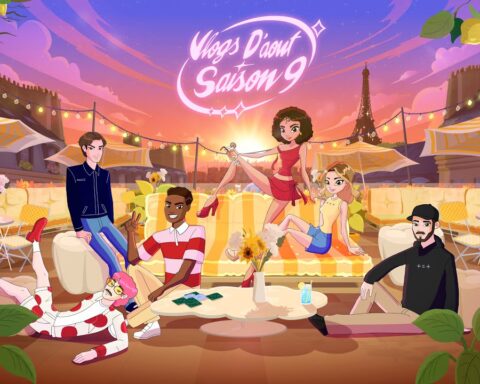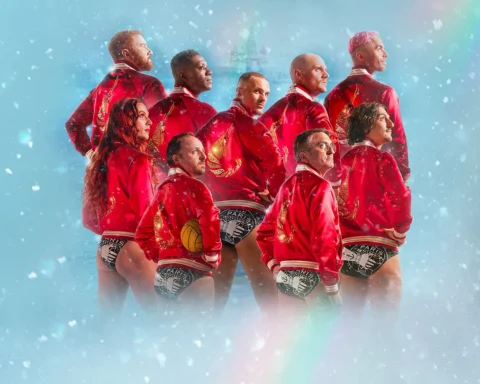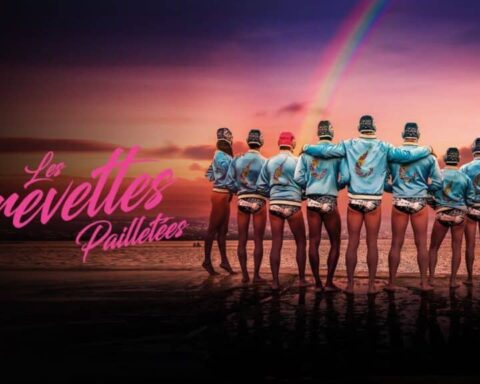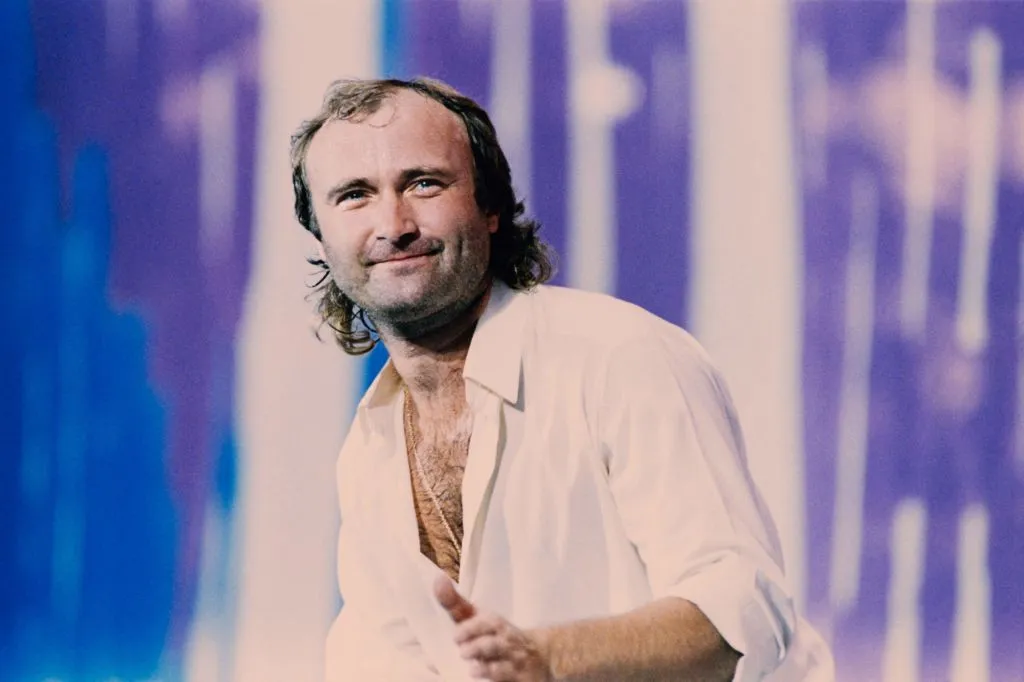Aurélien Cotentin, widely known by his stage name Orelsan, stands as a towering figure in French rap. Born on August 1, 1982, in Alençon, Normandy, Orelsan’s music journey has taken him from the obscure corners of provincial France to the forefront of the French cultural scene. He has crafted a unique identity in the rap world, blending sharp social commentary, introspective lyrics, and a diverse sound palette that draws from various genres. Orelsan’s career has been marked by his ability to navigate the complexities of fame, controversy, and artistic growth while remaining deeply connected to his roots and his generation.
In this essay, we will take an in-depth look at Orelsan’s career, exploring the various stages of his musical journey, the evolution of his sound and themes, and his impact on both French and global music cultures. Additionally, we will revisit an exclusive interview we conducted with him on October 5th, 2011, following the release of his first studio album, Perdu d’avance. This interview provides rare insights into the mind of a young artist on the brink of stardom, and we are proud to re-release it for his fans, who have followed his journey with us ever since.

Early Life and Influences
Orelsan’s upbringing in Alençon was typical of many young people growing up in provincial France during the 1980s and 1990s. Alençon, a small town in Normandy, is far removed from the bustling urban centers like Paris, where the French rap scene was beginning to take shape during Orelsan’s formative years. This geographic isolation had a significant impact on Orelsan’s perspective, fostering a sense of detachment and introspection that would later permeate his music.
Growing up, Orelsan was exposed to a variety of musical influences, ranging from the burgeoning French rap scene to American hip-hop and alternative rock. Artists like IAM, NTM, and MC Solaar were among the early pioneers of French rap, and their music provided Orelsan with a template for expressing his thoughts and experiences in a raw and unfiltered manner. American rappers like Eminem also had a profound influence on Orelsan, particularly in terms of lyrical complexity, storytelling, and the blending of humor with dark, introspective themes.
In addition to rap, Orelsan was influenced by the grunge and alternative rock scenes of the 1990s, particularly bands like Nirvana. The angst and disillusionment expressed in grunge music resonated with him and would later influence the tone and mood of his own work. This eclectic mix of influences helped shape Orelsan’s unique sound, which blends elements of rap, rock, and electronic music, and sets him apart from his contemporaries.
During his teenage years, Orelsan began to experiment with writing and performing music. However, it wasn’t until he moved to Caen for his university studies that he started to take his music seriously. In Caen, he met Guillaume Tranchant, better known as Gringe, and the two quickly bonded over their shared love of music and their desire to break into the rap scene. Together, they formed the duo Casseurs Flowters, a partnership that would play a significant role in both of their careers.
The Formation of Casseurs Flowters and Early Success
Orelsan et Gringe sont les Casseurs Flowters was more than just a musical project; it was a creative collaboration that allowed both Orelsan and Gringe to explore different facets of their personalities and artistic ambitions. The duo’s name, Casseurs Flowters, is a play on the French phrase “casseurs flotteurs,” which means “home wreckers” and is also a reference to the “Wet Bandits” from the film Home Alone. This mix of humor and wordplay became a hallmark of their work together.
In the early 2000s, Casseurs Flowters began releasing music online, building a small but dedicated following. Their early tracks were characterized by their humorous and often satirical take on the mundane aspects of life, from failed relationships to the struggles of being an unemployed young adult. The duo’s dynamic was built on their contrasting personalities: Orelsan’s introspective and sometimes melancholic outlook was balanced by Gringe’s more laid-back and carefree attitude. This contrast added depth to their music and resonated with listeners who saw themselves reflected in the duo’s lyrics.
One of their early successes was the track “Saint-Valentin,” a satirical take on the commercialization of Valentine’s Day. The song’s humorous and relatable lyrics struck a chord with listeners, earning Casseurs Flowters a reputation as a fresh and innovative voice in French rap. This period of early success was crucial for Orelsan, as it allowed him to develop his lyrical skills and stage presence, laying the groundwork for his future solo career.
However, despite their growing popularity, Orelsan and Gringe remained largely under the radar of the mainstream music industry. It wasn’t until Orelsan decided to pursue a solo career that he would truly break through and establish himself as a major force in French rap.
The Solo Breakthrough: Perdu d’avance (2009)
Orelsan’s decision to release a solo album was driven by his desire to explore themes that were more personal and introspective than the work he had done with Casseurs Flowters. His debut solo album, Perdu d’avance, released in 2009, was a bold and unapologetic statement that introduced Orelsan to a wider audience.
Perdu d’avance, which translates to “Lost in Advance,” is a reflection of Orelsan’s feelings of disillusionment and frustration with the world around him. The album’s themes of existential angst, social alienation, and the struggles of navigating adulthood resonated with a generation of young people who were grappling with similar issues. The album’s title track, “Perdu d’avance,” sets the tone for the entire project, with its introspective lyrics and minimalist production.
The album was produced by Skread, a well-known producer in the French rap scene who had previously worked with artists like Booba and Diam’s. Skread’s production on Perdu d’avance was characterized by its atmospheric and sometimes eerie soundscapes, which provided the perfect backdrop for Orelsan’s introspective lyrics. The album’s sound was a departure from the more traditional beats and samples that characterized much of French rap at the time, and it helped to establish Orelsan as a unique voice in the genre.
One of the standout tracks on the album is “Changement,” which translates to “Change.” The song’s lyrics are a critique of the societal pressures and expectations placed on young people, and it became an anthem for those who felt trapped by the constraints of modern life. Another notable track is “Soirée Ratée” (“Failed Party”), which combines humor with a sense of melancholy to tell the story of a night out gone wrong. These tracks showcased Orelsan’s ability to blend humor with serious social commentary, a skill that would become one of his trademarks.
However, Perdu d’avance was not without its controversies. The track “Sale Pute” (“Dirty Bitch”) attracted significant backlash due to its violent and misogynistic language. The song, which tells the story of a man seeking revenge on a woman who has betrayed him, was widely condemned by critics and feminist groups. Orelsan defended the track as a fictional narrative that explored the darker aspects of human emotions, but the controversy threatened to overshadow the album’s artistic merits.
Despite the backlash, Perdu d’avance was a commercial success, and it earned Orelsan a dedicated fanbase. The album was certified gold in France, and it established Orelsan as one of the most promising new talents in French rap. The success of Perdu d’avance also marked the beginning of a period of intense public scrutiny for Orelsan, as he was forced to navigate the complexities of fame and the pressures of being a public figure.
Our Interview with Orelsan (October 5th, 2011)
In the midst of the success and controversy surrounding Perdu d’avance, we had the opportunity to sit down with Orelsan for an in-depth interview on October 5th, 2011. This interview, conducted shortly after the release of his debut album, provides a rare glimpse into the mindset of an artist at a critical juncture in his career.
This interview, conducted at a pivotal moment in Orelsan’s career, provides valuable insight into the mind of an artist who was just beginning to find his voice. It also serves as a testament to his commitment to authenticity and his willingness to confront difficult issues through his music.

Interview with Orelsan by Atanaria (Asteria Magazine)
Atanaria (Asteria Magazine): How would you define your music and your universe?
Orelsan: I would define my music as “Orelsan’s style.” I create my own blends to achieve something personal.
Atanaria: Tell us about your new album, Le Chant des Sirènes. How did it come about? What is the deeper story behind this album?
Orelsan: Le Chant des Sirènes is my first album; it was released a week ago. I wanted to create an album that continued the spirit of the first one—different, but not a complete departure. It took me about two years to write.
Atanaria: Do you feel there’s an evolution between your first album, Perdu d’avance, and this new album?
Orelsan: Yes, there’s definitely a clear evolution, musically, melodically, and in the themes. I really like my first album; it was very spontaneous! This one is less centered on myself.
Atanaria: Which song from the album represents you the most?
Orelsan: This album is meant to be taken as a whole. If you listen to it all, you can find me between the lines. There are 16 tracks on the album, and choosing just one would be difficult.
Atanaria: What have been your influences throughout your life? What inspires you daily to create?
Orelsan: I have many influences, from variety music to metal, and a lot of rap, which is the music I listen to the most. There are many currents in rap, and I like a bit of everything—from the weirdest stuff to the most mainstream.
Atanaria: What stands out in your music is the risk-taking and the desire to convey multiple messages, no matter how controversial they may be. Are you concerned about the reactions the release of this new album might provoke?
Orelsan: No, I’m not concerned about the listeners’ reactions because, to me, nothing in it is controversial. I know exactly what I’m writing and why I’m doing it. As an artist, I aim to evoke emotions!
Atanaria: What has been your best live experience?
Orelsan: I really loved the concert at the Bataclan two years ago! Every concert is different, but I always enjoy myself!
Atanaria: You interact a lot with your fans, especially through social media. Is that something important to you? Why?
Orelsan: Yes, it’s something close to my heart and something I do naturally. I’ve almost always made music in close connection with the internet and social media—I see it as an extension of my music.
Atanaria: As an artist, what frustrates you the most about today’s society? To what extent do you address this in your lyrics?
Orelsan: There are lots of things that frustrate me; it’s often more about small details than big causes. Generally, it’s about a lack of perspective, bad faith… pettiness. I address it in my lyrics by simply talking about it!
Atanaria: Who is Orelsan? How would you define yourself?
Orelsan: I define myself as a fairly normal person with qualities and flaws who makes songs as best as possible, haha.
The Evolution Continues: Le chant des sirènes (2011)
Following the success of Perdu d’avance, Orelsan faced the daunting task of creating a follow-up album that would meet the high expectations set by his debut. His second studio album, Le chant des sirènes (The Song of the Sirens), released in 2011, was a critical and commercial success that solidified his place in the French rap scene.
Le chant des sirènes marked a significant evolution in Orelsan’s sound and lyrical themes. While his debut album was characterized by its raw and unfiltered expression of frustration and disillusionment, Le chant des sirènes explored a broader range of emotions and experiences. The album’s title alludes to the mythical sirens who lure sailors to their doom with their enchanting songs, a metaphor for the seductive but dangerous allure of fame and success.
The album’s lead single, “Raelsan,” serves as a powerful introduction to Orelsan’s evolved persona. The track is a bold and defiant declaration of self-confidence, with Orelsan asserting his place in the rap game. The production, again handled by Skread, is more polished and expansive than on Perdu d’avance, reflecting Orelsan’s growth as an artist.
One of the standout tracks on the album is “Suicide social,” a searing critique of modern society delivered in the form of a fictional suicide note. The song’s lyrics take aim at various aspects of contemporary life, from consumerism and social media to political corruption and the erosion of community values. “Suicide social” is a stark and unflinching commentary on the alienation and despair felt by many in today’s world, and it resonated deeply with listeners.
Another notable track is “La terre est ronde” (“The Earth is Round”), a more upbeat and optimistic song that contrasts with the darker themes found elsewhere on the album. In this track, Orelsan reflects on the cyclical nature of life and the importance of perseverance in the face of adversity. The song’s catchy hook and positive message made it a hit, and it showcased Orelsan’s ability to create music that was both thought-provoking and accessible.
Le chant des sirènes was a critical triumph, earning Orelsan his first Victoires de la Musique award for Best Urban Music Album in 2012. The album was also a commercial success, debuting at number three on the French charts and eventually being certified platinum. The success of Le chant des sirènes confirmed Orelsan’s status as one of the most important voices in French rap, and it set the stage for the next phase of his career.
Collaboration and Creativity: Casseurs Flowters Reunited (2013-2015)
After the success of his first two solo albums, Orelsan reunited with Gringe to revive their Casseurs Flowters project. The duo released their first full-length album, Orelsan et Gringe sont les Casseurs Flowters, in 2013. The album was a concept project that chronicled a single day in the lives of the two rappers, from waking up late in the afternoon to a failed attempt at making music, to a night out that ends in disappointment.
The album’s narrative structure and humorous tone were a departure from the more serious themes of Orelsan’s solo work, but it was nonetheless well-received by fans and critics alike. The album’s lead single, “Regarde comme il fait beau (dehors),” is a playful track that captures the duo’s laid-back attitude and irreverent sense of humor.
The success of the Casseurs Flowters album led to a number of other creative projects, including a television series called Bloqués, which aired on Canal+. The series, which ran from 2015 to 2016, featured Orelsan and Gringe playing fictionalized versions of themselves, stuck in a state of perpetual procrastination and laziness. The show was a hit with viewers and further showcased Orelsan’s talents as a writer and actor.
In addition to Bloqués, Orelsan and Gringe also starred in the 2015 film Comment c’est loin (“How Far We’ve Come”), which they co-wrote with director Christophe Offenstein. The film, which is loosely based on their lives, follows the duo as they struggle to complete a song in time for a live performance. Comment c’est loin was praised for its humor and authenticity, and it provided a deeper insight into the friendship and creative partnership between Orelsan and Gringe.
This period of collaboration and experimentation was important for Orelsan, as it allowed him to explore different aspects of his creativity and to reconnect with the more playful side of his personality. The success of Casseurs Flowters and its related projects also helped to expand Orelsan’s audience and solidify his reputation as a versatile and innovative artist.
The Artistic Maturity: La fête est finie (2017)
By the time Orelsan released his third solo album, La fête est finie (“The Party is Over”), in 2017, he had already established himself as one of the leading figures in French rap. However, this album marked a significant turning point in his career, as it showcased a more mature and introspective side of Orelsan.
La fête est finie is an exploration of the complexities of adulthood, fame, and the passage of time. The album’s themes reflect Orelsan’s growing awareness of the responsibilities and challenges that come with success, as well as his reflections on his own personal growth. The album’s title suggests a sense of finality, as if the carefree days of youth have come to an end, and it’s time to face the realities of life.
The album’s lead single, “Basique,” is a direct and confrontational track that addresses the superficiality and hypocrisy of modern society. The song’s minimalist beat and repetitive chorus serve to underscore its message, while the accompanying music video, shot in a single take, became a viral sensation. “Basique” was a statement of intent from Orelsan, signaling his desire to strip away the excess and get back to the basics of what matters most.
Another standout track on the album is “Tout va bien” (“Everything’s Fine”), a song that contrasts its upbeat melody with lyrics that address some of the darker aspects of contemporary life, including war, poverty, and environmental destruction. The song’s juxtaposition of cheerful music and serious themes is a reflection of Orelsan’s ability to engage with complex issues in a way that is both accessible and thought-provoking.
One of the most personal tracks on the album is “Notes pour trop tard” (“Notes for Too Late”), a reflective and introspective song in which Orelsan offers advice to his younger self. The track is a poignant exploration of regret, self-doubt, and the lessons learned from experience. The song’s lyrics, delivered in a stream-of-consciousness style, resonate with anyone who has ever looked back on their life and wished they could do things differently.
La fête est finie was a commercial and critical triumph, debuting at number one on the French charts and earning Orelsan three Victoires de la Musique awards in 2018, including Best Male Artist and Best Urban Music Album. The album’s success further solidified Orelsan’s status as one of the most important and influential artists in French music.
In addition to the album’s success, Orelsan also released a reissue titled La fête est finie – Épilogue in 2018, which included additional tracks that provided further insight into the themes explored on the original album. The reissue featured collaborations with artists like Damso and Stromae, further demonstrating Orelsan’s ability to connect with a wide range of artists and audiences.
Civilisation: A New Chapter (2021)
In 2021, Orelsan released his fourth studio album, Civilisation, a project that took his exploration of social and political themes to new heights. Civilisation is a bold and ambitious work that reflects on the state of the world in the 21st century, addressing issues such as environmental destruction, political corruption, and the rise of populism.
The album’s lead single, “L’odeur de l’essence” (“The Smell of Gasoline”), is a powerful indictment of the political and social tensions that define contemporary life. The track’s intense lyrics and urgent production captured the anxieties of a world on the brink, resonating with listeners both in France and abroad.
Civilisation was another critical and commercial success for Orelsan, debuting at number one on the French charts and receiving widespread acclaim. The album’s success further solidified Orelsan’s status as a leading figure in French music, and it confirmed his ability to evolve and remain relevant in an ever-changing cultural landscape.
The album’s themes reflect Orelsan’s deep concern for the state of the world, as well as his desire to use his platform to raise awareness about important issues. At the same time, Civilisation is also a deeply personal work, as Orelsan reflects on his own place in the world and the impact of his actions on future generations.
Impact
Orelsan’s career is a testament to his ability to navigate the complexities of fame, controversy, and artistic growth while remaining true to himself and his vision. Over the course of more than a decade, he has evolved from a young, disillusioned rapper from provincial France into one of the most important and influential voices in French music.
His impact on French rap and popular culture is undeniable. Orelsan has not only helped to redefine the boundaries of the genre but has also brought a new level of depth and introspection to his music. His willingness to confront difficult issues and to explore the darker aspects of human nature has resonated with audiences both in France and around the world.

At the same time, Orelsan has also demonstrated a remarkable ability to evolve and adapt to changing cultural and social landscapes. His music reflects the concerns and anxieties of his generation, while also offering a glimpse into the future of French rap.
As we revisit our interview with Orelsan from October 5th, 2011, we are reminded of the journey that he has undertaken and the incredible impact that he has had on French music and culture. We are proud to have been there at the beginning, and to have followed his career ever since. As Orelsan continues to push the boundaries of his art, we look forward to seeing what the future holds for this remarkable artist.
A Journey Like None Other
Orelsan’s journey from the small town of Alençon to the top of the French rap game is a story of talent, perseverance, and artistic evolution. His career has been marked by a willingness to take risks, to confront difficult issues, and to push the boundaries of what is possible in music. From the raw introspection of Perdu d’avance to the mature and reflective themes of Civilisation, Orelsan has continually evolved as an artist, while remaining deeply connected to his roots and his generation.

As we re-release our interview with Orelsan from October 5th, 2011, we celebrate not only his past achievements but also his ongoing contributions to the world of music. Orelsan’s career is a testament to the power of authenticity, creativity, and the ability to resonate with audiences on a deep and personal level. As we look to the future, there is no doubt that Orelsan will continue to be a defining voice in French music, and we are excited to see where his journey will take him next.









